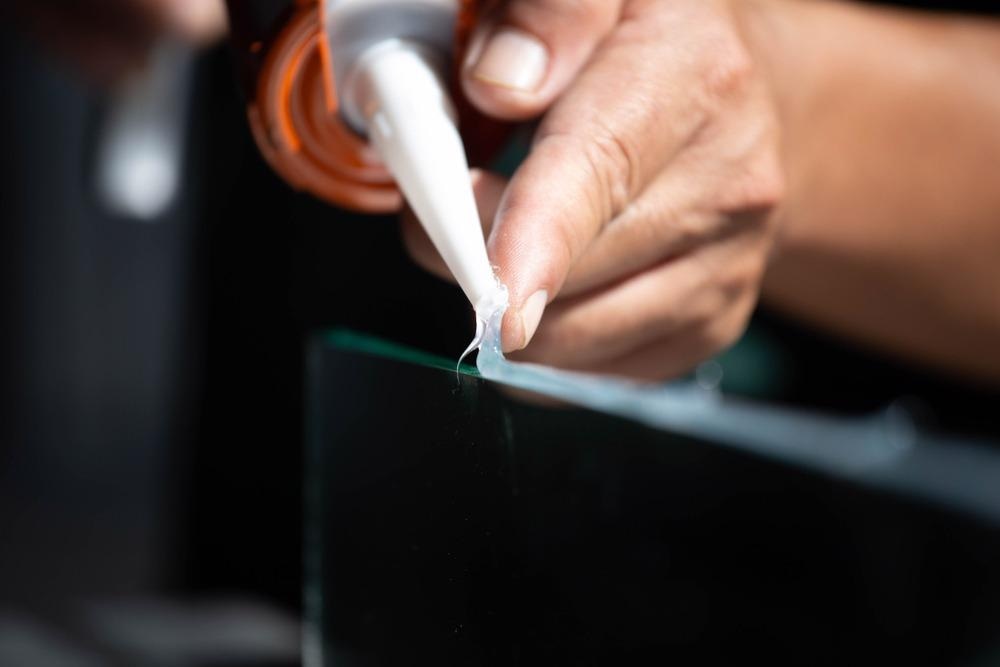Writing in the journal ACS Applied Polymer Materials, a team of researchers has reported the development of flame-resistant polymer adhesives based on the interaction of multiple hydrogen bonds. The research has been conducted by scientists from Zhejiang Sci-Tech University in Hangzhou, China.

Study: Strong and Flame-Resistant Thermoplastic Polymer Adhesives Based on Multiple Hydrogen Bonding Interactions. Image Credit: noprati somchit/Shutterstock.com
Promoting the Reusability of Polymers
In the modern world, there is a growing concern with the environmental damage caused by industrial and commercial activities. Amongst the multitude of materials used for commercial products, conventional polymers are especially problematic due to their energy-intensive production and lack of biodegradability in the environment. A vast quantity of polymeric material is produced annually, and this lack of biodegradability exacerbates issues with waste accumulation in ecosystems.
For this reason, there has been an increased focus on developing biodegradable and reusable polymers, and many governments have introduced regulations governing the safe disposal and reuse of polymeric materials, with aims to promote a more sustainable and circular polymer industry.
Reversible Polymer Adhesives
Polymer adhesives are widely used in applications ranging from adhesive tapes and packaging to advanced electronics and automobile components. However, conventional polymer adhesives are permanent, the use of which can be challenging. They can display substrate selectivity, are single-use, and leave residues, making recovery and reuse of parts problematic and causing environmental concerns.
Due to the issues with conventional permanent polymer adhesives, there has been increased research interest in developing reversible adhesives which overcome these challenges. Reversible adhesives possess advantageous properties such as on-demand de-bonding, easy release, and the ability to re-bond after damage. Multiple innovative production methods have been explored, including incorporating noncovalent and dynamic covalent bond groups.
However, current temporary adhesives have issues with bonding strength, which presents challenges with balancing their cohesive and adhesive properties. Research into fully reversible adhesives that are substrate-independent is a key concern in polymer adhesive research. Moreover, the development of flame-resistant adhesives is challenging, limiting their applications.
The Study
Scientists behind the study have reported the development of flame-resistant reversible polymer adhesives for use in multiple applications such as aerospace and automotive parts and for high-rise residences, where these properties are desirable. The novel adhesives possess thermoplastic properties, have performance that is independent of substrates, and have superior adhesion and cohesion.
The reversible, flame-resistant adhesives developed in the study are based on a network of multiple hydrogen bonds within the copolymer structure, which functions as a framework to improve the cohesion properties. Interfacial adhesion is facilitated by strong hydrogen bonds between the UPy units in the material and the substrate. Bonding strength can be optimized, achieving superior adhesion to substrates such as other polymers and metals by regulating the material’s viscoelastic properties.
More from AZoM: 3D Bio-Fabrication Using Polyphenolic Materials
Furthermore, the authors examined the influence of environmental factors such as humidity and temperature on the material’s properties, demonstrating that the adhesive films can be reused multiple times. To improve the material’s flame resistance, the authors incorporated monomers of diethyl phosphite or diethyl(hydroxymethyl)phosphonate.
Results and Conclusions of the Research
The prepared polymer adhesives in the research demonstrated superior reversibility and flame resistance. Due to their strong bonding strength and intense adhesive/substrate interface hydrogen bonding, the novel adhesives displayed a 40% improvement in peel strength and, remarkably, a 200% improvement in shear strength against a PACr counterpart.
Flame resistance tests demonstrated that applying the novel polymer adhesive to flammable PET substrates provided sufficient resistance to flames. Horizontal flame tests revealed that PET substrate not treated with the flame-resistant adhesive ignited easily and left melt droplets. Whilst the PET substrate/flame-resistant polymer adhesive could still be ignited, the combustion rate was much slower, with the production of zero melt droplets. The novel adhesive provided increased protection against flames for the flammable PET substrate.
It was observed by the authors that the horizontal and vertical flame tests demonstrated that these novel polymer adhesives could still be ignited, but considering the thickness of the film applied, achieving total resistance to fire is challenging as there are limitations in achieving char layer formation without destroying the material. The authors have stated that work on improving the fire resistance of the thin-film adhesive is ongoing.
Adhesive reusability was demonstrated in the research over ten use cycles, with the material displaying superior adhesive properties and performance in temperature ranges up to 60OC and in a humidity range between 20 and 80%.
The authors have stated that their research provides a route to manufacturing adhesives that can be considered for use in highly demanding applications where reversibility, substrate independence, and enhanced flame resistance are in demand. Whilst challenges still exist with the material, the proposed strategy presents intriguing potential.
Further Reading
Yu, J et al. (2022) Strong and Flame-Resistant Thermoplastic Polymer Adhesives Based on Multiple Hydrogen Bonding Interactions [online] ACS Appl. Polym. Mater. | pubs.acs.org. Available at: https://pubs.acs.org/doi/10.1021/acsapm.2c00131
Disclaimer: The views expressed here are those of the author expressed in their private capacity and do not necessarily represent the views of AZoM.com Limited T/A AZoNetwork the owner and operator of this website. This disclaimer forms part of the Terms and conditions of use of this website.